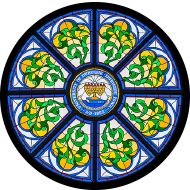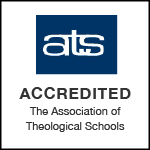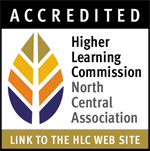Doctor of Ministry (DMin)
January 2024 Cohort Information Coming Soon!
January 2023 Cohort: Looking Beyond Crisis
Redefining Ministry for a Recovering World
Responding to crisis is an essential part of our pastoral vocation. Never has this been more vividly illustrated than in the changes we have faced, both personally and professionally, during these past few years.
This DMin cohort will focus on enabling pastors and church leaders to explore and examine the crises we have experienced and discover new ways for Christians to live out their faith in the years to come. We will study issues of leadership, identity, ecclesiology, and cultural relevance, while examining how our scriptural, theological, and historical foundations impact the ever-evolving church. Our goal is not to get back to normal, but to discover what new forms normal will take as we share and live out our faith in the future.
Cohort Leaders:
- Dr. Richard "Skip" Shaffer
Pastor, Oswego Presbyterian Church
Former Associate Dean, UDTS - Dr. Sara Dingman
Synod Executive, Synod of Lincoln Trails (PCUSA)
Adjunct Faculty, UDTS
2023 Cohort Fact Sheet
Congregational Revitalization - The Pastor as Leader
The University of Dubuque Theological Seminary Doctor of Ministry degree program is focused on Congregational Revitalization - The Pastor as Leader.
This DMin is unique with its emphasis on congregational revitalization and the leadership role of the pastor. It is both practical and theoretical: practical in that it is based in the local congregation and attempts to identify concrete leadership tools for the pastor; theoretical in that it is rooted in the classical theological disciplines of the church.
Each entering class becomes a cohort group that will remain together throughout the duration of the program. Two faculty members organize and provide the leadership for the three years of seminar work. Additional resource persons will be invited to share as appropriate. The three-year program consists of three one-week seminars and a doctoral project. Both pre- and post-class work are required for the seminars. Courses are held the last week in May on the UDTS campus or at another site.
Students must maintain continuous registration in the DMin Program until completion of the degree. The maximum time allowed for completion of the program is five years.
The DMin program requires the completion of 40 credit hours for graduation: 30 credit hours of coursework and ten credits for the doctoral project. Students complete the degree in three to five years. Only work receiving a grade of B- or higher will count toward graduation requirements.
Components of the Program
Faculty-led cohort groups. Two faculty form the leadership team for the cohort group. They design the curriculum, provide the majority of teaching for the cohort group, create the reading list, and evaluate the Seminar papers. Additional faculty may be brought into the seminars to provide modules addressing specific topics or issues. The seminars presume faculty and students each bring specialized knowledge to the dialogue. The faculty shape the seminars by designing the curriculum and leading classes.
Pre- and post-seminar self-directed learning. In addition to the faculty-student interaction, each seminar includes two additional components: pre- and post- seminar work. The pre-seminar work consists of readings or special projects which are completed prior to the on-site seminar. Post-seminar work includes specific written projects which integrate reading, seminar work and the experience of ministry in the student's congregational setting.
Peer learning. The cohort group structure creates a unique support community which is consistent and continues throughout the entire program. Peer learning creates an added dimension of community support and understanding that should continue beyond the program, throughout the rest of a student's life.
Congregational resource team and faculty learning team. The congregational resource team is the congregation's connection with the program. They contract to work with the pastor during the life of the DMin. program. They help the student explore ideas and become a membership core concerned with revitalization in the congregation. To the extent that the resource team does its job, it creates an ongoing learning environment for the student.
The faculty learning team provides instruction and leadership throughout the program. In addition it assists individual students in developing a doctoral proposal and project and provides support for students while in the program. The intent is to create a learning environment characterized by nurture and discipline, which encourages the student to become a more faithful and effective pastor.
Doctoral project. The capstone of the DMin program is the doctoral project. The purpose of the doctoral project is to provide students with the opportunity to address a particular issue in ministry and offer new insights which contribute to pastoral effectiveness.
Two possible options for the doctoral project include a Ministry Focus Project or a DMin Thesis. 1) Ministry Focus Project. Students may choose to write a publishable Ministry Focus Paper, which combines a theology of ministry with a strategy for ministry. As such, it is focused in a particular congregational setting and deals with theory, strategy and guidelines in order to produce more effective ministry in a particular locale. 2) DMin Thesis. Students may choose to write a publishable thesis that combines investigation of some aspect of the tradition of the church (biblical, theological, historical, pastoral) and its implications for congregational renewal today.
DMin Admission Requirements
Master of Divinity Degree Students must have completed an MDiv degree with a B average from an ATS accredited seminary.
Experience Students must have been in full-time ministry for a minimum of three years following completion of their MDiv
Currently in ministry Students must be employed in a ministry setting and remain in ministry throughout their DMin program.
Prospects for success Students must give evidence of the possibility of successful completion of the program through demonstrated success and recommendations.
English is required Applicants who are not native speakers of English must pass the TOEFL exam with a score of 550.
Evaluation Applications for admission will be evaluated by the Doctor of Ministry Committee utilizing transcript evidence, reference letters, judicatory and ministry setting support, and the applicant's autobiographical statement and anticipated learning goals.
For program questions contact:
Tim Slemmons, Ph.D.
Professor of Homiletics and Worship
Director of the Doctor of Ministry Program
Phone: 563.589.3691
Email: TSlemmons@dbq.edu
For information on application process, contact Seminary Admission at UDTSAdmission@dbq.edu or 563.589.3115.





